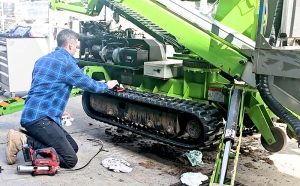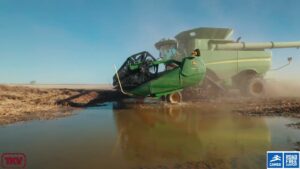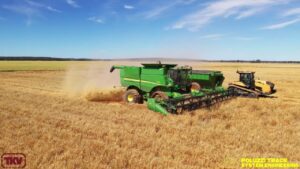Some of the prices we are seeing offered on the internet out of China are incredibly cheap – too cheap in fact. Many Australian companies are using resources such as Google and Alibaba to find Chinese manufacturers of undercarriage parts. Items including track chains, rollers and sprockets in order to remove the middle man and save some money.
On initial observation, this looks like a fantastic option. Here are some things that you will need to consider before you go down this track.
1. Is China still low cost?
China is no longer the low-cost manufacturing paradise it once was. The problems of long lead times, dodgy suppliers and suspect quality is still prevalent. Even though it has to be admitted that some highly respectable and capable manufacturers do exist. The trouble is, these “good” manufacturers are not cheap – in fact, often quite the opposite.
Why is this so? Quite simply, costs are soaring in China. Increased global trade has directly led to rapid increases in costs including labour, land prices, energy, environmental and safety regulations, freight, logistics and taxes. As well the Chinese currency has appreciated significantly in recent times. Made in China is just not as cheap as before, and this is before we consider the cost of dealing with problems with China supply chains.
2. Quality issues
Made in China is not equal to poor quality, but your quality risk is greater. At the end of the day, the developing nature of the economy and system of government in China means that there is often a distinct lack in adherence to standards that are considered sacrosanct in the Western world. This can result in material substitution or even counterfeit products or materials.
The rapid rises and often shortages in raw materials can lead to shortcuts being taken by suppliers to ensure that their profitability is maintained.
3. The manufacturing process costs
Heat -treating requires massive amounts of heat and energy over a required period of time. Electricity shortages and increase in price in China is having a real effect on many smaller foundries and forges in China. For example, recently a crestfallen client contacted us to have a look at his 20-tonne excavator. He had purchased a full set of undercarriage including track chains directly from China and had saved (he thought) aprox $6000 in the initial purchase. The trouble was, after 800 hours the track chains were starting to melt like cheese. Upon testing and examination, the undercarriage, whilst heat treated, had little to no penetration or depth of hardening. This meant that when the outer hardened crust had worn through, there was only soft un-hardened steel underneath. Clearly short cuts had been taken, an expensive lesson indeed. Ever tried to sue a company in China? No chance.
4. Cultural Problems
This is an interesting one. Due to the solid legal system in Australia and the protections afforded to consumers under law, most companies will try to do the right thing, and they know if they don’t, they face an expensive law suit. However, things are very different in China.
A Melbourne importer recently negotiated heavily with a Chinese company they had been dealing with for more than 4 years. Eventually the supplier agreed to meet their price point and the money was exchanged. When the container arrived however, it contained the correct weight of useless concrete blocks. This is by no means a once-off occurrence and is a growing trend costing Australian companies millions each year.
5. Who are you really dealing with?
This is perhaps the biggest risk of all. It is so easy to set up a nice website that looks great and put a few pictures on Alibaba. The trouble is, there may well be nothing underneath.
Very often, the company you are dealing with is not a factory at all, just a trading housing buying and selling products to your order. The issue is, this then becomes a purely financial transaction with no understanding of the technical issues, fitments or product specifications. Too often these trading companies will disappear overnight only to open under a new name the next day. Suddenly emails are not answered, Skype is disconnected and the money is gone with no chance of recovery.
6. Customs and Quarantine Problems
We have had asbestos declarations from 3 regular suppliers rejected by the Australian Customs and Quarantine in the past month. This has led to the goods being quarantined and unloaded under supervision and tested in a licenced Quarantine facility before being released. Each time this has costed us approx. $2000 per shipment extra.
It is interesting to note that this is happening. It is clear that Packing Declarations, Asbestos Declarations and Fumigation Certificates from China are no longer trusted by the authorities. If the shipment is found to contain prohibited items, then the goods will be destroyed or returned to country of origin at your cost. You have to have every “I” dotted and every “t” crossed these days.
Thus, the overall cost of your China supply chain might be much more than what you can think. It is very easy to be taken in by the crazy cheap prices with very low shipping costs. Mostly the supplier will only pay the shipping costs to the Australian port. However, this is the easy bit. The real difficulties and costs arise in getting Customs and Quarantine clearances. Typically, you need to allow $1500 to $2500 per shipment on top of the CIF Melbourne/Sydney etc pricing offered by the supplier.
Is it all doom and gloom?
No, not at all. You do need to be aware of the risks however. Remember the old adage, if it looks too cheap, then it most probably is!!


